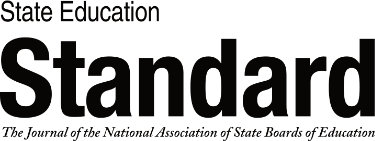Is any particular type of state board more effective than another? It is hard to define an “effective” board without knowing what it should do, and expectations vary from state to state about their place in American education policy. Should they lead and direct policy, or should they follow the lead of school districts? Should the governor, as a state-level politician, be a key player or not? Should they seek public input? Should they “control the narrative” to advance some desired policy goal with the press?
And who should they be? Are they supposed to be representative assemblies, drawn from a wide range of walks of life and demographics? Are they spokespersons for education generally or public education specifically? Are they to be drawn from the ranks of educators, policy experts, or the general public? None of these questions can be answered definitively for all state boards, in part because state laws and constitutions grant (or withhold) a variety of their powers and in part because the boards comprise people with their own agendas.
Effective State Education Governance
Also In this Issue
Effective State Education Governance
By Arnold F. ShoberNo one model is clearly superior, but relationships, talent, and shared loyalty are marks of governance systems that get things done.
Roadmap to Excellence: Strategic Planning for State Boards
By Abigail Potts and Paolo DeMariaSavvy boards can increase the odds their plans will live, breathe, and have measurable impact.
State Takeovers: No Silver Bullet for School District Improvement
By Beth SchuelerOn average, takeover fails to improve achievement measures, but how it is done matters a lot.
Harnessing the Power of Evidence-Based Policymaking
By Heather Boughton and Sara KerrState boards should lean into education data and work to overcome challenges to doing so.
State Boards and the Governance of Early Childhood Education
By Elliot RegensteinAs states seek to bring coherence to the disparate systems that have a hand in early education and care, state boards have key roles to play.
The Role of Teachers Unions in School Governance during COVID-19
By Sara Dahill-Brown and Lesley LaveryWhile relationships with school leaders were contentious in places, many districts benefited from collaborative ones.









 i
i
 i
i